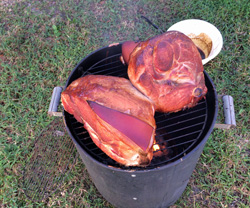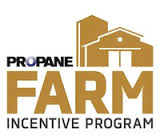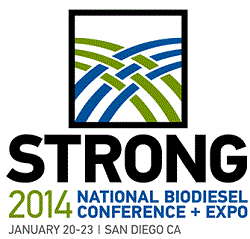Franklin, Vermont farmers Denna and Mike Benjamin were heading into the holidays with a big wish: natural gas to start their anaerobic digester to convert the methane fro their cows’ manure to electricity. The project was partially funded by a federal grant, and if the digester was not operating by year’s end they would lose a major portion of the money.
The challenge they were facing was not living near a natural gas pipleline and a “shot of pure gas” was needed to get the biogas generator going. So the Benjamins called NG Advantage, a company that trucks compressed natural gas (CNG) to very large industrial 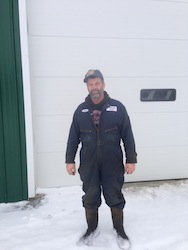 customers not located on gas pipelines. The company brings several tractor-trailer loads of gas each day to their large customers, whose factories run their boilers 24/7. These isolated facilities save an estimated 20-40 percent on their fuel bills and emit 26 percent less CO2. The Benjamins hoped that NG Advantage could bring them the much-needed natural gas to get their digester operating.
customers not located on gas pipelines. The company brings several tractor-trailer loads of gas each day to their large customers, whose factories run their boilers 24/7. These isolated facilities save an estimated 20-40 percent on their fuel bills and emit 26 percent less CO2. The Benjamins hoped that NG Advantage could bring them the much-needed natural gas to get their digester operating.
Even though the Benjamins did not need a trailer full of gas, NG Advantage worked with the Benjamins’ engineer, John Forcier of Forcier Consulting Engineers PC, Christopher Herrick, the Chief of the Vermont HAZMAT Response Team, Mike Raker of the Green Mountain Power Renewable Development Fund, Robert Achilles of the Vermont State Agency of Agriculture, and a Canadian company Bio-Methatech, to make a small delivery of gas available to the Benjamins within two days of the phone call. General Transportation of Bridge Water, MA (NG Advantage’s hauler) provide the use of their tractor at no charge to help reduce the cost.
NG Advantage’s VP of Operations and Safety, Gerry Myers, organized the holiday rescue team. He explained why the company went out of its way to help the Benjamins, “Environmental stewardship and embracing the needs of our community at large are embedded in our company’s daily operations. Helping the Benjamin family and Riverview Farm achieve success with their digester project was the right thing to do.”
Denna Benjamin described why it is important for them to build a digester at the Riverview Farm by saying, “We, as other farmers, are looking for ways to diversify our income steam so that we can keep farming. This project seemed like a way to do that and to improve the environment at the same time.”
The Benjamins built the anaerobic digester to use the manure from their cows to create electricity that they can sell back to the grid, to generate heat their farm, and to create a byproduct that provides dry bedding for the cows. By using the methane from the manure to generate electricity, they also eliminate the substantial release of greenhouse gas that would have otherwise naturally occurred.Read More
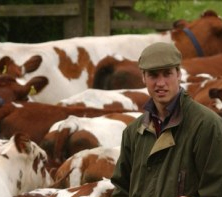 Hear ye, hear ye! New daddy and heir to the British throne will be studying agriculture in 2014.
Hear ye, hear ye! New daddy and heir to the British throne will be studying agriculture in 2014. 



